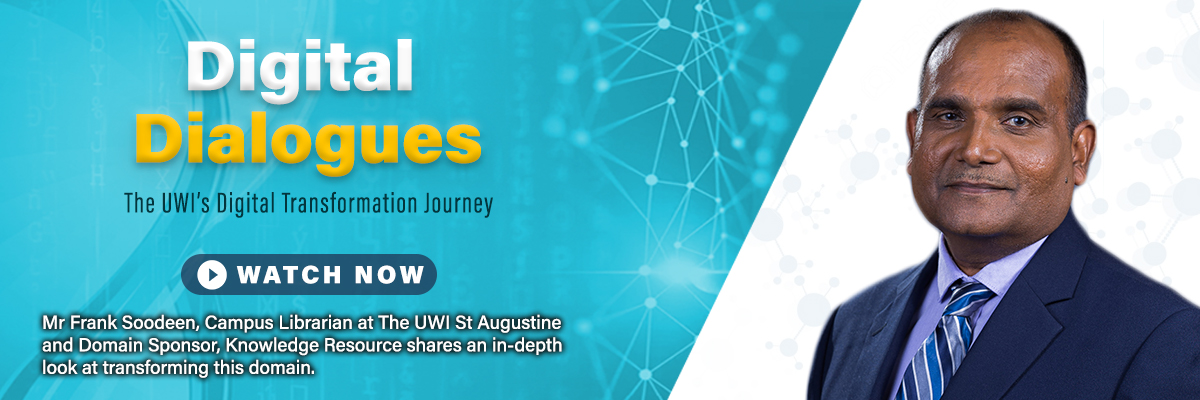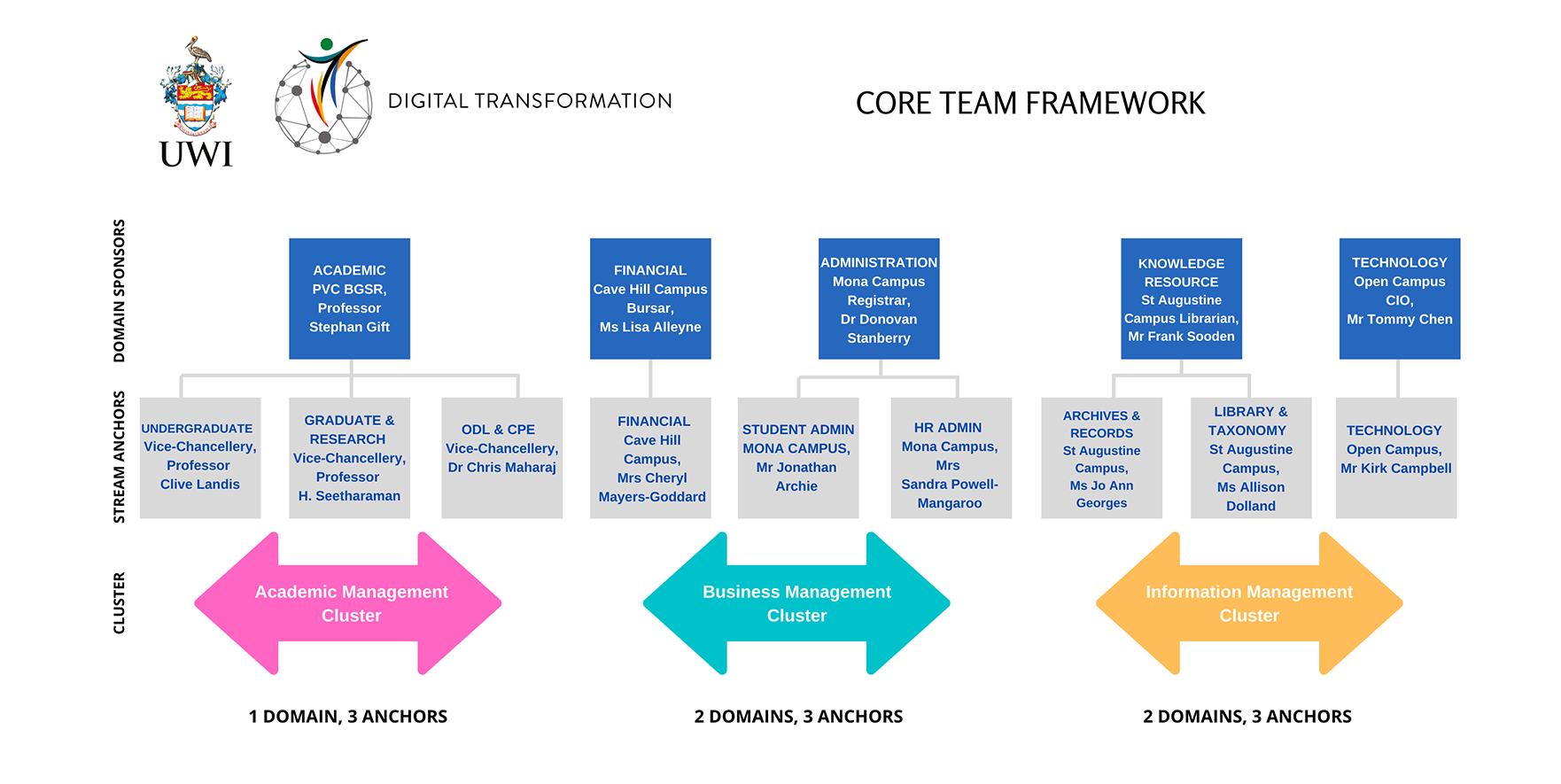People, Processes and Technology
People, Processes and Technology
Release date: February 4, 2021
This second communiqué in the series on The UWI’s digital transformation journey focuses on the interconnectedness among people, processes and technology.
While digital transformation aims to improve the customer experience—often with the use of new digital processes and tools—it requires employees’ buy-in for change and adaptation. Contrary to popular belief, digital transformation is less about technology and more about people. People drive the transformation process. Technology merely enables different ways of working for the organisation’s people to serve its customers.
Consider for example, our University’s response to the COVID-19 pandemic: successfully working from home while transitioning to remote teaching and learning, delivering student support services and planning and executing our first ever, virtual graduation ceremonies. It’s our people who responded and adapted to make these happen.
The journey to digital transformation is a much more complex exercise towards a foundational change in how we deliver service and value to our customers. It requires engagement and active participation from everyone throughout the University system in a ONE UWI spirit of collaboration.
Designing the customer experience
In the higher education sector, the customer experience centres heavily on student experiences, including learning outcomes, retention and graduation rates, employment rates, and entry-level salaries. Operationally, the customer experiences will be mapped from recruitment until graduation and employment. Our ability to prioritise the student experience increases our ability to produce improved learning outcomes, increased retention and graduation rates, better employment rates, and the increased employability potential of our graduates.
As The UWI positions itself as an agile institution, it has to re-engineer its business processes to remove bottlenecks and redundancies so that it can respond swiftly to internal exigencies and external opportunities. The technology will be critical to facilitate this change in processes and mind-set. This is the essence of digital transformation the strategic plan envisages. When transformed, The UWI should see improved business processes and increased revenues flowing to the enterprise from the digital space. So, a good measure of whether or not digital transformation has happened, would be to look at the efficiencies gained and the outcomes of revenues generated from that space.
Throughout the coming months, as we progress from the DISCOVERY to the DELIVERY phase, the work model is focused on optimising mission-critical operations across the entire UWI system. At each phase there may be different levels of emphasis on process and technology, but underpinning the programme’s success are the hearts and minds of the University—our people. The current phase involves the discovery of nomenclature and site locations through data scans and system audits. You may be called upon to respond to queries/requests for information that come from the Domain Sponsors, Stream Anchors or other focal points leading the programme. As the journey continues, we each have a responsibility to understand what happens next, the role each of us plays in this process and support we must give to ensure its success.
Meet the Core Team


